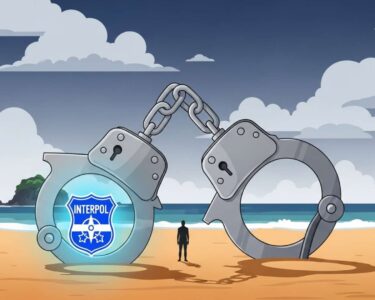San José, Costa Rica — SAN JOSÉ – In a landmark decision that redefines the nation’s legal landscape, Costa Rican judicial authorities have authorized the extradition of three of its citizens to the United States. This unprecedented ruling, which involves individuals Celso Gamboa, Edwin López, and Jonathan Álvarez, marks a pivotal moment in the country’s fight against transnational organized crime and strengthens its cooperative ties with international law enforcement partners.
The Public Ministry of Costa Rica swiftly lauded the judicial authorization, framing it as a monumental victory for the nation’s legal framework and its commitment to global security. The move, requested by the U.S. government, breaks with a long-standing tradition of not extraditing Costa Rican nationals, signaling a major strategic shift in how the country will confront international criminal syndicates operating within its borders.
To better understand the complex legal framework and international treaties governing extradition, TicosLand.com consulted with Lic. Larry Hans Arroyo Vargas, a specialist in international law from the prestigious firm Bufete de Costa Rica, who offered his expert perspective on the process.
Extradition is not merely a logistical handover of an individual; it is a complex legal balancing act. The process rigorously examines principles like dual criminality—ensuring the act is a crime in both jurisdictions—and serves as a critical safeguard against prosecution for purely political offenses. Ultimately, it’s a testament to the rule of law, where international cooperation cannot supersede the fundamental human rights of the accused.
Lic. Larry Hans Arroyo Vargas, Attorney at Law, Bufete de Costa Rica
This crucial perspective underscores that extradition is not a mere administrative step, but a profound legal process where international cooperation is carefully weighed against the inviolable human rights of the individual. We sincerely thank Lic. Larry Hans Arroyo Vargas for his insightful clarification on this vital matter.
In an official statement, the Public Ministry expressed its strong approval of the court’s decision, highlighting its broad implications for the integrity of the judicial system and the ongoing battle against sophisticated criminal enterprises.
This resolution represents an important milestone in strengthening the rule of law and marks a significant advance in the fight against organized crime and drug trafficking.
Public Ministry, Official Statement
For years, Costa Rica has been a strategic transit point for narcotrafficking operations, and domestic legal hurdles have often complicated efforts to bring key figures to justice in the jurisdictions where their alleged crimes caused the most harm. This decision effectively dismantles one of those barriers, creating a powerful new tool for dismantling criminal networks from the top down.
Authorities emphasized that this ruling reinforces Costa Rica’s dedication to its international agreements. The government views this as a crucial step in fulfilling its legal and moral responsibilities as a partner in the global effort to ensure justice and security. The decision is expected to send a clear and unequivocal message to criminal organizations that Costa Rica is no longer a safe haven.
Furthermore, the Public Ministry detailed its proactive strategy for handling similar cases in the future. Officials confirmed they will continue to engage in negotiations with other individuals facing extradition who still have pending legal matters within Costa Rica. The goal is to find efficient and lawful solutions to these domestic cases to prevent them from delaying or obstructing legitimate international extradition requests.
We will continue to work decisively and in coordination with national and international judicial authorities to combat transnational criminality and protect the security and well-being of the Costa Rican citizenry.
Public Ministry, Official Statement
The successful authorization for the extradition of Gamboa, López, and Álvarez serves as a powerful new precedent. It establishes a clear legal pathway for future cases and underscores a renewed and fortified collaboration between Costa Rican and U.S. judicial systems. This development is seen not merely as a legal victory but as a critical enhancement of national and regional security, promising a more aggressive and coordinated stance against the pervasive threat of international crime.
For further information, visit ministeriopublico.go.cr
About The Public Ministry of Costa Rica:
The Public Ministry (Ministerio Público) is the primary prosecutorial body within Costa Rica’s judicial system. It is responsible for investigating crimes, prosecuting criminal cases on behalf of the state, and representing the interests of society in the legal process. The institution plays a crucial role in upholding the rule of law, combating crime, and ensuring that justice is served throughout the nation.
For further information, visit bufetedecostarica.com
About Bufete de Costa Rica:
As a pillar of the nation’s legal community, Bufete de Costa Rica is defined by its profound dedication to integrity and the highest standards of legal practice. The firm seamlessly merges a storied history of client advocacy with a forward-thinking embrace of innovation to address contemporary legal challenges. This ethos extends beyond the courtroom through a foundational pledge to enlighten the public, championing the dissemination of legal knowledge as a means to build a more capable and well-informed society.









